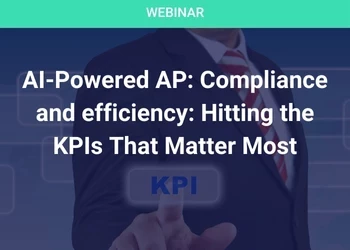Sourcing Superstars: Ranjit Narasimhan, HCL BPO
Add bookmarkHCL Technologies is one of the crown jewels of India’s IT and IT-enabled services industry, with global revenues in excess of $5 billion and a headcount of over 60,000 spread over 23 countries. Since 2001 its business process outsourcing division has taken an increasingly large slice of the global outsourcing pie, with HCL head honcho Shiv Nadar - described as "perhaps [the] chief architect" of the Indian IT industry - recognizing very early on the growing role played by BPO beneath the umbrella of IT-enabled services.
Earlier this month SSON spoke with Ranjit Narasimhan, president and CEO of HCL BPO, about how his company is reacting to the pressures of the current global economic climate, whether his target market is shifting - and what he has planned for the next few years.
*Meet more Sourcing Superstars
SSON: Ranjit, you’re at the top of one of the leading BPO providers globally, giving you a pretty useful perspective of the space! How do you think the outsourcing sector has changed while you’ve been in the business and how have you had to adapt to cope with those changes?
Ranjit Narasimhan: I have been very fortunate to be in this industry since the inception of HCL BPO in 2001. We started with a small team of 20 people in September 2001, and we've grown to about 13,000 people in the span of seven and a half years.
Over this time, there has been a paradigm shift in customer expectations from cost arbitrage to skill arbitrage, from input-based pricing to a preference for output-based pricing, from operational efficiency to business transformation. Customers also moved away from looking at mere savings in cost; they look to the service provider not as a vendor but as a partner who adds value to their business.
In order to effectively address this changing customer paradigm, we re-architected ourselves completely. We did this by a conscious strategy to move away from linear monotonic growth and delink the revenue growth from headcount growth. We adopted a global delivery model to further expand our delivery footprint to offer near-shore, off-shore options, and to minimize risks from currency fluctuations, and country-specific risks. HCL BPO is consciously moving from voice-based services to transaction-based services to knowledge-based service. We are also moving away from input-based pricing to output-based pricing to outcome-based pricing, while strengthening our customer acquisition process.
SSON: What do you see as the biggest challenges facing the BPO industry right now?
Ranjit Narasimhan: The biggest challenges that we see facing the BPO industry right now are significant currency fluctuations, and of course the global meltdown has affected everybody as we've become a global village and economies are so integrated that anything that impacts on one part of the world has an impact in another.
But the current global economic downturn is not going to last forever; it holds a mid- and long-term positive impact for the BPO industry. When companies eventually emerge from the present crisis, they would start thinking of how to get their work done in the most cost effective manner without compromising quality. Sustaining cost competitiveness will be an important driver and the IT-enabled services industry will allow enterprises to do more with less.
SSON: And what about the biggest challenges facing HCL BPO in particular?
Ranjit Narasimhan: The biggest challenge facing HCL BPO is the economic situation. Our customers are facing challenges in their own markets. We are witnessing slower decision-making cycles. New revenue from existing customers is taking a hit. There are customers who come up for renegotiations. Service providers are challenged by customers to add value, and decrease costs.The BPO industry is maturing with the economic crisis, and so are the pricing models.
Today, faced with these tough times, our plans – both short term and long term – are geared to make HCL go forward faster when things improve. Our focus will continue to be on moving up the value chain, on performance, and on delivering value to our customers.
SSON: Although the global economic situation still hasn’t clarified completely following the financial crisis of last year, it’s clear that we’re in a very different world now. What do you see as being the long-term consequences for outsourcing - and Indian outsourcing in particular?
Ranjit Narasimhan: Yes, the economic situation hasn’t clarified completely following the financial crisis.
The financial crisis has accelerated interest across stakeholders to understand adoption trends and opportunity areas in offshoring, among other cost containment measures. Banks and other financial services firms are under significant cost-reduction pressure. Interestingly, the financial services industry, comprised of banking, capital markets and insurance, is also the leading adopter of offshoring services and accounts for 40-45 percent of worldwide global sourcing.
Global outsourcing has helped companies gain the vital competitive edge. The proven key drivers for economic revival worldwide are time-to-market, transformation of businesses, integration of processes, reduce costs and enhance efficiency – and this is precisely the outsourcing advantage.
The current global economic situation holds a short- and long-term positive impact for business process outsourcing and Indian BPO companies.
The Indian BPO industry has come a long way and has matured enough to focus on high quality of service rather than profit from just cost arbitrage based on cheaper Indian labour. The leaders in the industry have managed to build domain expertise, or in some cases acquire it in chosen areas (HCL’s acquisition of Liberata Financial Services and Control Point Solutions). This has allowed them to deliver cost savings by reengineering processes for their clients.
SSON: What have been the biggest consequences thus far of the Satyam affair - and is enough being done to ensure there won’t be a repeat?
Ranjit Narasimhan: This incident is particularly unfortunate as the Indian IT-BPO industry had set very high standards of ethics and corporate governance. But I do feel that this is a stand-alone case of failure of corporate governance and it is critical that it be viewed in this light. The positive fallout from this episode is that organizations have become more focused on enhancing corporate governance, bringing standards to a much higher level than they were before.India’s regulatory structure is strong enough to prevent this sort of incident in future.
SSON: Let’s look at HCL BPO specifically. What is it about the way your organization works which in your opinion sets it apart from your competitors?
Ranjit Narasimhan: There are a lot of differentiators and that's what has helped us get a lot of global accolades in such a short period of time... The key differentiators are in terms of strategy, in terms of quality and in terms of infrastructure. We have one of the best quality standards in the industry...
SSON: Who and where is your target market right now - and has this changed in recent years?
Ranjit Narasimhan: Our target markets are the UK, US, Australia, and English-speaking geographies. Our focus has been on the English-speaking territories right from the beginning – but as we move forward, maybe in a year or two as we extend our global footprint we will be looking at targeting other European languages also.
SSON: Which geographies do you see as being the biggest growth markets for you over the next five to ten years?
Ranjit Narasimhan: We still feel that the largest markets will be the US and the UK, which are our two largest markets. [However] over the next few years, and through our String of Pearls initiatives, HCL BPO would be looking at other Europe language markets as well to include Spanish, French, and German.
SSON: What have been the most successful marketing strategies for HCL BPO in terms of reaching new audiences, and is this changing? Is it getting harder to sell your services as the marketplace gets more and more crowded?
Ranjit Narasimhan: Actually we attribute our transformation to Blue Ocean Strategy, which has been very successful - to create blue oceans of uncontested market space ripe for growth. This being very difficult for services-related companies where innovation is not necessarily the end product, HCL switched its focus to value from concentrating on volume.
HCL’s Value BPO strategy led to the near-shore off-shore blend which we pioneered, and the benefits of which we offer our customers.
SSON: How does your relationship with your parent company play out - and how does it help the BPO work that you do?
Ranjit Narasimhan: Actually we're a division, it's not a parent company. It's helped us differentiate our services, and helps us offer an integrated service offering to the customer. Today we are seeing consolidation of vendors by many customers – many customers are looking at multiple vendors out there, but when they consolidate they like outsource all their services to a single vendor. So we have a very strong offering in software and infrastructure management services...
Further, the platforms which we acquire need to be kept on cutting-edge. HCL’s extensive software expertise comes to the fore to enhance the services offering. And of course HCL has a strong balance sheet.
SSON: What - in your opinion - makes an ideal client?
Ranjit Narasimhan: Getting the basics right is what makes a client ideal to the service provider. An ideal client is one who with a vision, and who is clear in what he wants to achieve.
An ideal client is one who sees outsourcing as a strategic move rather than a short-term tactical move... and who believes in collaboration.
An ideal client is one who looks at the services provider as a business partner to move from transitioning processes towards a transformative solution. [And] an ideal client is one who is financially strong, and who is clearly focused on expanding his market share so as he grows, we grow along with him.
SSON: What’s the secret to a successful buyer-provider relationship?
Ranjit Narasimhan: The secret to a successful buyer-provider relationship lies in the degree of congruency between a client's objectives and values and those of its service provider [and congruency in] coordination and control systems, processes, capabilities and technology.
Governance and escalation mechanisms are very important to a successful buyer-provider relationship.
A clear contract (after taking into consideration goals and expectation, measures for performance and governance), clubbed with a passion to consistently exceed SLAs holds the key to a successful buyer-provider relationship.
SSON: Finally, what are your ambitions - personal and professional - for the next couple of years?
Ranjit Narasimhan: Professional ambition would be to put HCL into the top league of business process outsourcing service providers globally. (I believe in the Rule of Three propounded by management guru Jagdish Seth.)
Personally, I see myself playing an active role in enhancing the quality of higher education in India.





















